 W
WClaus von Ahlefeldt (1614–74) was a member of the Ahlefeldt noble family of Holstein, who married the King of Denmark-Norway's natural daughter and rose to become a field marshal in Danish-Norwegian service.
 W
WAnne of Denmark was Queen of Scotland, England, and Ireland by marriage to King James VI and I.
 W
WAxel Urup was a Danish military engineer and commander, Rigsmarsk and Supreme Court justice.
 W
WBeate Clausdatter Bille was a Danish noblewoman, a member of the royal court, Chief Lady-in-Waiting to Queen Sophie from 1584 to 1592, the wife of statesman Otte Brahe, and a feudal fiefholder in her own right following the death of her husband. She succeeded her sister-in-law Inger Oxe, who held the office from 1572 to 1584, as Chief Lady-in-Waiting to Queen Sophie. Beate Bille was the mother of astronomers Tycho Brahe and Sophia Brahe.
 W
WKaren Brahe, was a Danish aristocrat and book collector.
 W
WSophia or Sophie Brahe or after marriage Sophie Thott Lange, was a Danish noble woman and horticulturalist with knowledge of astronomy, chemistry, and medicine. She worked alongside her brother Tycho Brahe in making astronomical observations.
 W
WJonas Bronck was born around year 1600 and died in 1643. Bronck was an immigrant to the Dutch colony of New Netherland after whom the Bronx River, and by extension, the county and New York City borough of the Bronx are named. A mural at the Bronx County Courthouse depicting Bronck's arrival was created in the early 1930s by James Monroe Hewlett.
 W
WHendrik Carloff was an adventurer active in the 17th century. Carloff began his career as a cabin boy, but rose to become the Commander and Director of the Dutch West India Company. He later joined the Swedish Africa Company and the Danish Africa Company on the Gold Coast, during which time he was involved in the slave trade. Between 1676 and 1677, he was the Governor of Tobago.
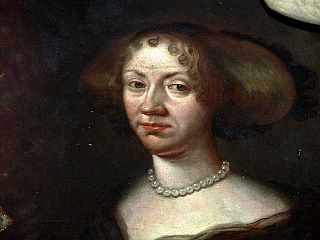 W
WAbel Cathrine was a Danish courtier and philanthropist. She was the favorite of the queen of Denmark, Sophie Amalie of Brunswick-Lüneburg, and known as the founder of Abel Cathrine Foundation. Abel Cathrines Gade, a street in Copenhagen, is named after her.
 W
WChristen Willumsen Worm was a Danish theologian and Bishop of the Diocese of Zealand from 1711 until his death.
 W
WLucas Jacobsøn Debes was a Danish priest, topographer and celebrated writer about the Faroe Islands. He wrote the first book about the Faroes, which was printed and drew the first detailed map of the Faroe Islands.
 W
WPrince Frederick William of Schleswig-Holstein-Sonderburg-Augustenborg was a member of the House of Oldenburg and a Prince of Schleswig-Holstein-Sonderburg-Augustenburg.
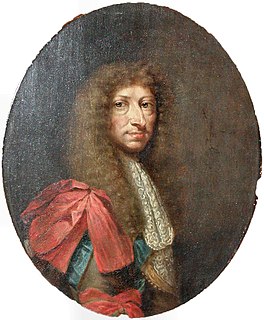 W
WFrederik Ahlefeldt was a Danish landowner and statesman. He was Grand Chancellor during the reign of King Christian V.
 W
WPrince George of Denmark and Norway, Duke of Cumberland, was the husband of Queen Anne, who reigned over Great Britain from 1702 to 1714.
 W
WAnne Gøye was a Danish noblewoman and a book collector. The daughter of Henrik Gøye of Skørringe (1562-1611) and Brigitte Brahe (1576-1619), she spent much of her childhood with her aunt Sophie Brahe and her husband Holger Rosenkrantz in Rosenholm Castle. In 1660, she set up her own home in Næstved but in 1673 moved to Odense where she lived in what is now known as Odense Adelige Jomfrukloster.
 W
WChristian Gyldenløve, Count of Samsøe, was one of five illegitimate children fathered by Christian V of Denmark with Sophie Amalie Moth.
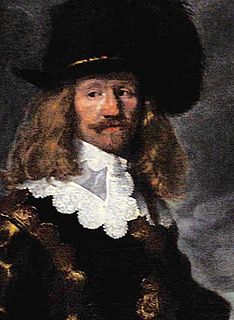 W
WHans Ulrik Gyldenløve was the illegitimate son of King Christian IV of Denmark and his mistress, Karen Andersdatter. He was also a Danish Navy officer and lensmann bailiff.
 W
WUlrik Christian Gyldenløve was a Danish navy Admiral and Governor of Iceland. He was an acknowledged illegitimate son of King Christian V of Denmark and his officially acknowledged royal mistress Sophie Amalie Moth.
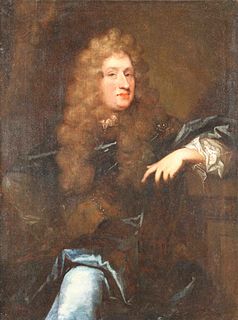 W
WUlrik Frederik Gyldenløve, Count of Laurvig was Governor-general of Norway from 1664–1699. He was the leading general in Norway during the Scanian War, whose Norwegian leg is conventionally named the Gyldenløve War after him.
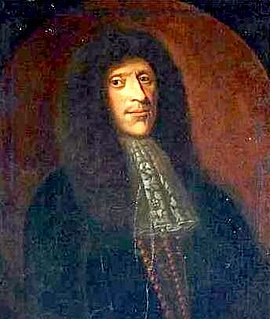 W
WHans Rostgaard was a Danish bailiff (ridefoged) and county administrator (amtsforvalter) at Helsingør who is remembered for his achievement in the Second Northern War and especially his role during the Swedish siege of Copenhagen and subsequent assault on the city in 1659. He is also associated with Krogerup Manor in Humlebæk where a statue of him by Hans Peder Pedersen-Dan was installed in 1904. He was the father of Frederik Rostgaard and the uncle of Jens Rostgaard.
 W
WDorothea Justina Haxthausen (1663-1735) was a Danish courtier. She was a lady-in-waiting to the queen of Denmark, Charlotte Amalie of Hesse-Kassel, and known as a favorite and confidante of the queen.
 W
WLudvig Holberg, Baron of Holberg was a writer, essayist, philosopher, historian and playwright born in Bergen, Norway, during the time of the Dano-Norwegian dual monarchy. He was influenced by Humanism, the Enlightenment and the Baroque. Holberg is considered the founder of modern Danish and Norwegian literature. He is best known for the comedies he wrote in 1722–1723 for the Lille Grønnegade Theatre in Copenhagen. Holberg's works about natural and common law were widely read by many Danish law students over two hundred years, from 1736 to 1936.
 W
WCountess Christine Sophie Holstein of Holsteinborg, née Reventlow was a politically influential Danish salon hostess.
 W
WUlrik Adolf Holstein, Greve til Holsteinborg was a Danish nobleman and statesman.
 W
WErik Juel, often referred to as Erik Juel to Hundsbæk and Alsted, was a Danish courtier, seignory and Privy Councillor, the father of Admiral Niels Juel and of the politician and diplomat Jens Juel.
 W
WJens Juel was a Danish diplomat and statesman of great influence at the Danish court. He was created Baron and granted Juellinge in 1672 and also established Juellund in 1694. He was the brother of Admiral Niels Juel.
 W
WNiels Juel was a Danish-Norwegian admiral and a Danish naval hero. He served as supreme command of the Royal Danish Navy during the late 17th century and oversaw development of the Danish Navy.
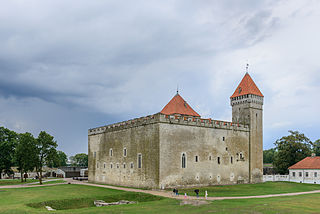 W
WKaren Sehested (1606-1672) was a Danish court official and land owner. She served as principal lady-in-waiting and royal governess for the children of King Christian IV of Denmark and Kirsten Munk from 1631 to 1634. She was portrayed in the famous memoirs of Leonora Christina Ulfeldt, Jammers Minde (1674).
 W
WJochem Pietersen Kuyter was an early colonist to New Netherland, and one of the first settlers of what would become Harlem on the island of Manhattan. He became an influential member of the community and served on the citizen boards known as the Twelve Men, the Eight Men and the Nine Men.
 W
WEllen Marsvin was a Danish noble, landowner and county administrator. She was the mother-in-law of King Christian IV of Denmark, the mother of Kirsten Munk (1598–1658) and grandmother of Leonora Christina Ulfeldt (1621–1698).
 W
WJens Munk was a Dano-Norwegian navigator and explorer. He entered into the service of King Christian IV of Denmark and is most noted for his attempts to find the Northwest Passage to India.
 W
WKirsten Munk was a Danish noble, the second spouse of King Christian IV of Denmark, and mother to twelve of his children.
 W
WPeder Munk of Estvadgård (1534–1623), was a Danish navigator, politician, and ambassador, who was in charge of the fleet carrying Anne of Denmark to Scotland. The events of the voyage led to witch trials and executions in Denmark and Scotland.
 W
WSimon Paulli, was a Danish physician and naturalist. He was a professor of anatomy, surgery and botany at the University of Copenhagen. The genus Paullinia is named after him.
 W
WAnne Margrethe Qvitzow was a Danish poet and memoir writer. She is most associated with her translations.
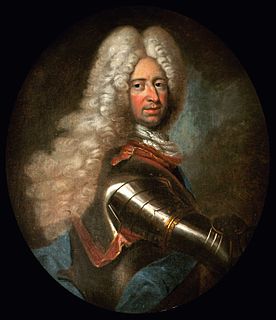 W
WConrad, Greve von Reventlow was a Danish statesman who was "Grand Chancellor of Denmark", a predecessor title of the Prime Minister of Denmark, from 1699 until his death. His chancellorship occurred during the reign of King Frederick IV.
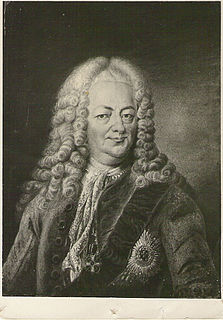 W
WIver Eriksen Rosenkrantz was a Danish statesman and landowner.
 W
WHenrik Ruse, Baron of Rysensteen was a Dutch officer and fortification engineer. Following a period when he served in various armies in Germany and Italy, he wrote a well-researched book documenting the latest trends in fortification systems across Europe. As a result, he was entrusted with commissions for improving defences in his native Amsterdam, in Germany, and finally in Denmark and Norway where, benefitting from the support of the monarchy, he first became a general and later a baron. Ruse died in Sauwerd near Groningen in the Netherlands.
 W
WHans Schack,, was a member of the north German noble family Schack, who after many years in French service, entered the Danish service, made major contributions during the war with Sweden, and loyally supported Frederick III when he overthrew the Danish constitution. He became a Danish field-marshal, commander-in-chief of the Danish army, member of the Board of State, and of the Danish Privy Council, and made a Danish count.
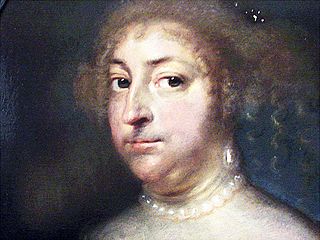 W
WChristiane Christiansdatter Sehested was the daughter of king Christian IV of Denmark and his morganatic spouse, Kirsten Munk. She shared the title Countess of Schleswig-Holstein with her mother and siblings. She was the twin of her sister Hedevig Ulfeldt.
 W
WHannibal Sehested was a Dano-Norwegian statesman and son-in-law of King Christian IV. He served as Governor-general of Norway from 1642 to 1651 and Chancellor of Norway from 1648 to 1660. He fought in the Torstenson War against Sweden and implemented many reforms in Norway. After a fall from grace leading to his resignation as Governor-general in 1651, he regained the trust of Frederick III in 1660 and negotiated the Treaty of Copenhagen. He worked as lord treasurer and councillor of state until his death in 1666.
 W
WAlbret Skeel was a Danish nobleman who held the office of Admiral of the Realm from 1616 to 1623.
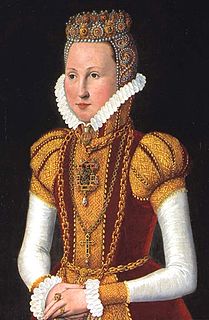 W
WSophie of Mecklenburg-Güstrow was Queen of Denmark and Norway by marriage to Frederick II of Denmark. She was the mother of King Christian IV of Denmark. She was Regent of Schleswig-Holstein 1590–1594.
 W
WPeder Pedersen Syv or in Latin Petrus Petri Septimius was a Danish philologist, folklorist and priest, known for his collections of Danish proverbs and folksongs, and his contributions to the development of Danish as a written language.
 W
WHedwig of Schleswig-Holstein was the daughter of king Christian IV of Denmark and Kirsten Munk. She was the twin of her sister Christiane Sehested. She shared the title Countess of Schleswig-Holstein with her mother and siblings.
 W
WLeonora Christina, Countess Ulfeldt, born "Countess Leonora Christina Christiansdatter" til Slesvig og Holsten, was the daughter of King Christian IV of Denmark and wife of Steward of the Realm, traitor Count Corfitz Ulfeldt. Renowned in Denmark since the 19th century for her posthumously published autobiography, Jammers Minde, written secretly during two decades of solitary confinement in a royal dungeon, her intimate version of the major events she witnessed in Europe's history, interwoven with ruminations on her woes as a political prisoner, still commands popular interest, scholarly respect, and has virtually become the stuff of legend as retold and enlivened in Danish literature and art.
 W
WJørgen Knudsen Urne was a Danish noble who served as Rigsmarsk from 1632 to 1642.
 W
WValdemar Christian of Schleswig-Holstein was the son of king Christian IV of Denmark and his morganatic spouse Kirsten Munk. He had the title Count of Schleswig-Holstein.
 W
WDitlev Vibe was a Danish government official and Governor-general of Norway from 1722 until his death.
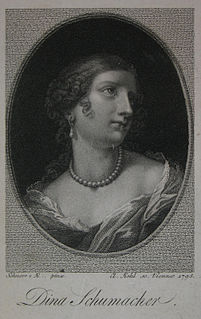 W
WDina Vinhofvers was a Danish silk worker who became famous because of her involvement in an alleged conspiracy of Danish statesman Corfitz Ulfeldt (1606–1664) against King Frederick III of Denmark in 1650–51.